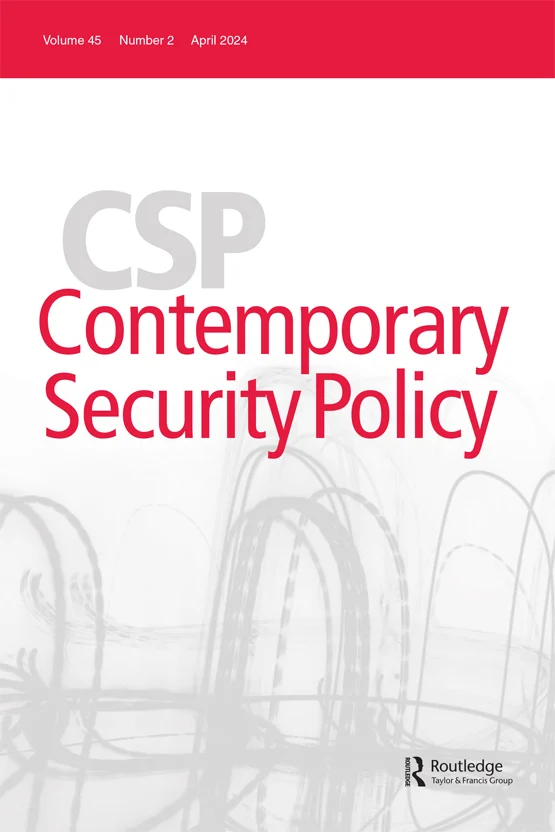Risk acceptance and offensive war: The case of Russia under the Putin regime
IF 5
1区 社会学
Q1 INTERNATIONAL RELATIONS
引用次数: 4
Abstract
ABSTRACT Russia’s decision to invade Ukraine in early 2022 was seemingly driven by an unprecedented willingness to accept risks for the Russian regime, state, and society. Developing a generalizable framework, this article analyzes the development of Russian risk acceptance in offensive war initiation. Drawing on policy documents, speeches, expert literature, and various interviews with Russian, Ukrainian, and Western policymakers, the article finds that risk acceptance has continuously risen since the mid-2000s, although the 2022 invasion still evinces some risk aversion. These results are robust when accounting for miscalculation and caution against attributing the 2022 invasion solely to short-term and leader-centric factors. They also provide cues for understanding the crisis behavior of Russia and other major powers, corroborate prospect theory models on cognitive biases in elite decision-making, and indicate the need to revise the theoretical assumption that risk acceptance is an empirically rare and drastic aberration from a risk-neutral or risk-averse normality.风险接受与进攻性战争:普京政权下的俄罗斯
俄罗斯在2022年初决定入侵乌克兰,似乎是出于对俄罗斯政权、国家和社会承担风险的前所未有的意愿。本文建立了一个可推广的框架,分析了俄罗斯在进攻战争启动过程中风险接受的发展。根据政策文件、演讲、专家文献以及对俄罗斯、乌克兰和西方政策制定者的各种采访,文章发现,自2000年代中期以来,风险接受度不断上升,尽管2022年的入侵仍然显示出一些风险厌恶情绪。考虑到误判和谨慎,不要把2022年的入侵仅仅归因于短期和以领导人为中心的因素,这些结果是强有力的。它们还为理解俄罗斯和其他大国的危机行为提供了线索,证实了精英决策中认知偏差的前景理论模型,并表明有必要修改理论假设,即风险接受是风险中性或风险厌恶常态的经验罕见和严重偏差。
本文章由计算机程序翻译,如有差异,请以英文原文为准。
求助全文
约1分钟内获得全文
求助全文
来源期刊

Contemporary Security Policy
Multiple-
CiteScore
14.60
自引率
6.80%
发文量
22
期刊介绍:
One of the oldest peer-reviewed journals in international conflict and security, Contemporary Security Policy promotes theoretically-based research on policy problems of armed conflict, intervention and conflict resolution. Since it first appeared in 1980, CSP has established its unique place as a meeting ground for research at the nexus of theory and policy.
Spanning the gap between academic and policy approaches, CSP offers policy analysts a place to pursue fundamental issues, and academic writers a venue for addressing policy. Major fields of concern include:
War and armed conflict
Peacekeeping
Conflict resolution
Arms control and disarmament
Defense policy
Strategic culture
International institutions.
CSP is committed to a broad range of intellectual perspectives. Articles promote new analytical approaches, iconoclastic interpretations and previously overlooked perspectives. Its pages encourage novel contributions and outlooks, not particular methodologies or policy goals. Its geographical scope is worldwide and includes security challenges in Europe, Africa, the Middle-East and Asia. Authors are encouraged to examine established priorities in innovative ways and to apply traditional methods to new problems.
 求助内容:
求助内容: 应助结果提醒方式:
应助结果提醒方式:


